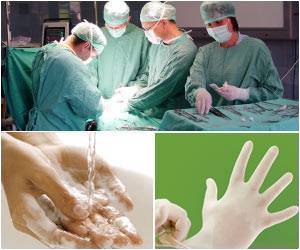A standardized protocol aids in decreasing the length of stay, narcotic use, and total direct pharmacy costs in colorectal surgery patients.

TOP INSIGHT
Hospital costs, narcotic use, and total direct pharmacy costs can all be reduced with an enhanced recovery pathway for colorectal patients.
Enhanced recovery protocols that standardize surgical management of patients have been established by surgical specialty societies and individual institutions for many types of operations. Already in use throughout Europe for several years, the enhanced recovery approach is now gaining momentum in the U.S.
A similar program is now under way through the American College of Surgeons (ACS). In 2017, ACS, in collaboration with the Johns Hopkins Medicine Armstrong Institute for Patient Safety and Quality, Baltimore, launched the Agency for Healthcare Research and Quality (AHRQ) Safety Program for Improving Surgical Care and Recovery (ISCR). This new surgical quality improvement program is funded and guided by AHRQ.
The AHRQ Safety Program for ISCR is enrolling and supporting hospitals in implementing perioperative evidence-based pathways to meaningfully improve clinical outcomes, reduce hospital length-of-stay, and improve the patient experience.
Furthermore, guidelines for standardizing the care of colorectal surgery patients have been established by the American Society of Colon and Rectal Surgeons (ASCRS) and the Society of American Gastrointestinal and Endoscopic Surgeons (SAGES). These guidelines were updated in 2017. Previous studies have shown that these protocols reduce overall complications and length of stay and improve patient satisfaction.
Researchers from the University of Cincinnati study compared outcomes and costs for two groups of patients: 160 patients who underwent colorectal procedures one year before an enhanced recovery program was instituted in 2016 and 146 patients who had procedures in the year following universal adoption of the program.
The study found that the hospital length of stay was two days shorter for patients in the enhanced recovery group. Fewer patients in this group had lack of normal bowel function (6 percent vs. 20 percent). These patients were able to discontinue pain medication one day after surgery, compared with three days post-surgery for patients in the other group, and reduce narcotic use. Patients in the enhanced recovery program required 212 morphine equivalent units; patients in the other group required 720 morphine equivalent units.
Total direct hospital costs were $1,717 lower per patient in the enhanced recovery group, which translates into an annual savings of more than $250,000. Daily pharmacy costs per patient were higher ($477 vs. $318). However, total pharmacy costs were $325 less in the enhanced recovery group.
Findings from the study addressed two principal concerns associated with the adoption of enhanced recovery protocols for colorectal surgery patients. One is slow motility or ileus.
"Surgeons would wait as long as possible to feed patients after colorectal surgery because of the feeling that the intestinal tract was not ready for food yet. We've seen in the literature that it's very safe to feed patients immediately after their operations. By restricting fluids, changing the pain management regimen, mobilizing the patient sooner, and putting all these steps together as an organized pathway, we're seeing that the return of normal gastrointestinal function is faster and patients get out of the hospital sooner," Dr. Paquette said.
Enhanced recovery pathways have not been widely implemented because of the concern that they involve the use of high-cost pharmaceuticals.
"Narcotics, which are commonly used in managing pain after surgery, are very inexpensive. Medications recommended in enhanced recovery protocols, such as intravenous acetaminophen, ibuprofen, and alvimopan, are expensive and increase daily pharmacy costs. Our study showed that the enhanced recovery pathway decreased total pharmacy cost as well as the total cost of hospitalization," Dr. Paquette said.
"The evidence is overwhelming that enhanced recovery pathways lead to a better recovery, get patients back to a normal lifestyle in a quicker manner, and minimize the amount of narcotics, which may help with the ongoing opioid epidemic. This study shows they also lower hospital costs," he concluded.
Source-Eurekalert
 MEDINDIA
MEDINDIA




 Email
Email




